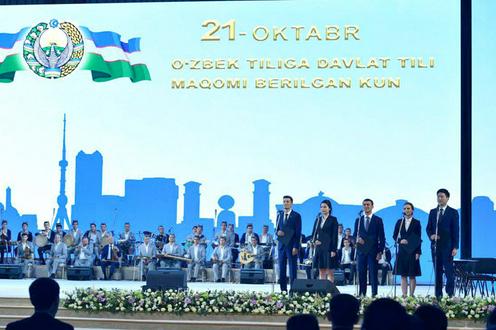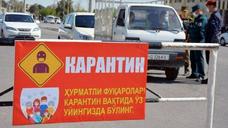 An event celebrating the 30th anniversary of the designation of Uzbek as the official language of state. Photo from President.uz
An event celebrating the 30th anniversary of the designation of Uzbek as the official language of state. Photo from President.uz
A draft law in Uzbekistan has proposed introducing fines for state employees who fail to use the official state language (Uzbek) in their administrative work. The new proposal has been published for public discussion by the country’s ministry of justice.
At present, article 42 paragraph 1 of the Administrative Offences Code of Uzbekistan stipulates a fine of between one and two base units (between 223,000 and 446,000 soms, or $22-44 dollars) for any citizen who hinders another’s right to the free choice of language in general communication, in parenting and in education, or who demonstrates a disparaging attitude towards the state language or the languages of other recognised ethnic groups living in Uzbekistan.
The new draft law seeks to supplement article 42 with a second paragraph laying down a fine of two to five base units (446,000 to 1.1m soms, or $44-110) for government employees who fail to comply with the law during the course of their professional duties. According to the bill’s authors, this measure will help to enhance civil servants’ accountability and speed up the translation of documents into the official state language.
Previously, the country’s justice ministry announced that proposals uploaded to the government’s online portal for the public discussion of prospective draft laws which are not accompanied by an Uzbek-language version will be automatically rejected.
Gazeta.uz writes that the authorities undertook a review of practices in other countries while drawing up the present proposals. In Ukraine, for example, a similar law stipulates fines of $125-250, and in Tajikistan fines of between $167 and $227.
In its current form, the law designating Uzbek as the official language of state in Uzbekistan was passed on 21 December 1995. However, administrative work continues to be conducted in both Uzbek and Russian.









